Glin Castle, Co Limerick: The garden that tells the tale of a succession of artistic women
Numerous generations of one family have added to the beauty of Glin Castle and its gardens. Catherine Fitzgerald, its latest chatelaine, describes its story and her own plans for its future.

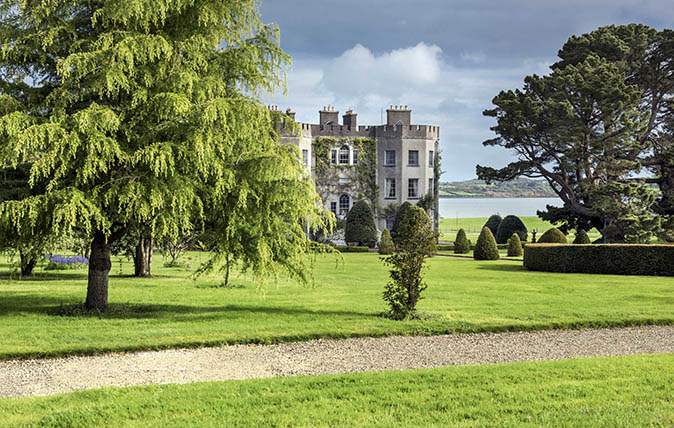
Exquisite houses, the beauty of Nature, and how to get the most from your life, straight to your inbox.
You are now subscribed
Your newsletter sign-up was successful
The north front of Glin Castle, Co Limerick, was built on the shores of the broad Shannon estuary in the 1780s. It looks out over a stretch of green fields, dotted with grazing black-and-white cows and flocks of visiting long-beaked curlews and crested peewits, to the sweep of water beyond. On stormy days, gales sweep in and batter the sea wall and the stark, bow-fronted façade, but, in clear, calm weather, the water is as smooth as glass and the patchwork of fields in neighbouring Co Clare is lit up in every tiny detail.
Glin Castle was built as a grand, neo-Classical house during a golden moment for architecture and culture in Ireland, by my ancestor the 25th Knight of Glin, John Bateman Fitzgerald. He appears in a dashing Volunteer uniform of scarlet and gold, leaning on a cannon, in his portrait over the hall fireplace. However, he soon ran out of money (a regular occurrence with the Fitzgeralds of Glin) and the top floor was never finished.
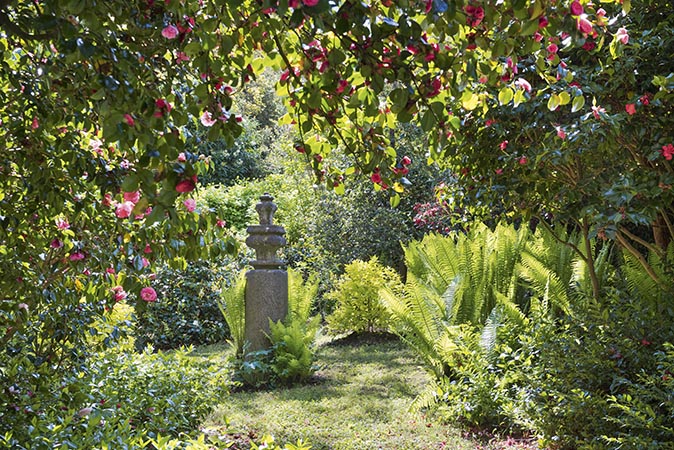
Fortunes revived and, in the 1820s, his son, John Fraunceis Fitzgerald, a colourful character with a fiery temper, known locally in Gaelic as the Knight of the Women, added the Gothic crenellations, turrets and pepper-pot lodges with arrow loops that ornament the outskirts of the demesne. He was proud of his ancient lineage and romantic history – the original Glin Castle held out valiantly against the English Crown when it was besieged in 1601 by Elizabethan forces sailing up the Shannon. It still stands: a shattered, ivy-clad ruin beside the River Corbry in the village of Glin.
John Fraunceis learnt Gaelic, patronised poets and musicians and was interested in architecture and design. He laid out the bones of the garden as we know it – building the nearby walled kitchen garden and the little Gothic hermitage with brick barrel vault and pointed, arched windows. This was lost for many years under a bank of brambles and ferns, before being dug out of the hillside by my parents in the 1970s.
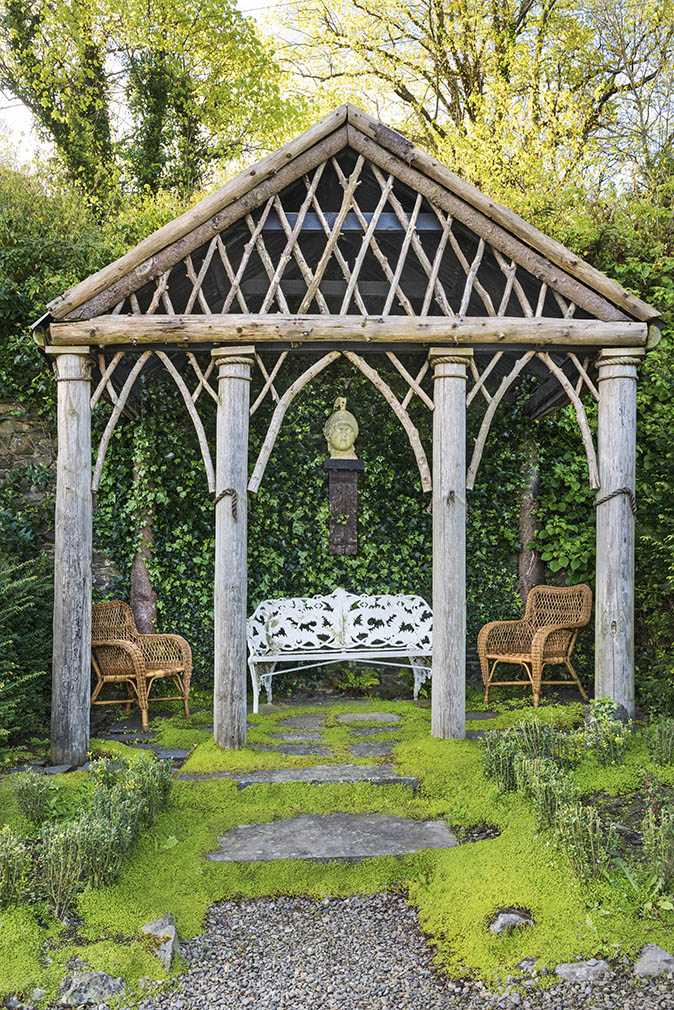
The main garden lies behind the house and offers a complete contrast to the somewhat bleak north front. Here, protected by the tall, sheltering walls of the house, lies a softer world, in which plants from Chile and China flourish within the curtilage of trees and hedges. The Gulf Stream, which washes the nearby Atlantic shores, keeps the worst of the frosts at bay and, combined with the heavy rainfall of some 6ft a year, fosters a wide range of exotic trees and shrubs.
The garden tells the tale of a succession of lively, artistic women, each of whom added a layer of ideas and plantings of their own. The 1890s saw the arrival of Rachael Wyndham-Quin, my great-grandmother, from nearby Adare Manor. She planted the now huge specimens of Drimys winteri and Crinodendron hookerianum from Chile, the ever-spreading stands of architectural Gunnera and the giant Pinus radiata from Monterey in California.
Her father, the 4th Earl of Dunraven, travelled widely, collected plants and made two famous gardens in Co Kerry: Garinish Island, near Sneem, and Derrynane. The Chilean plants at Glin would have been available since the 1860s, when they were first introduced to Veitch’s nursery in Exeter by the famous planthunter William Lobb. I like to think of Rachael’s plant-mad father advising his newly married daughter on what would do well in the mild, wet conditions at Glin.
Exquisite houses, the beauty of Nature, and how to get the most from your life, straight to your inbox.
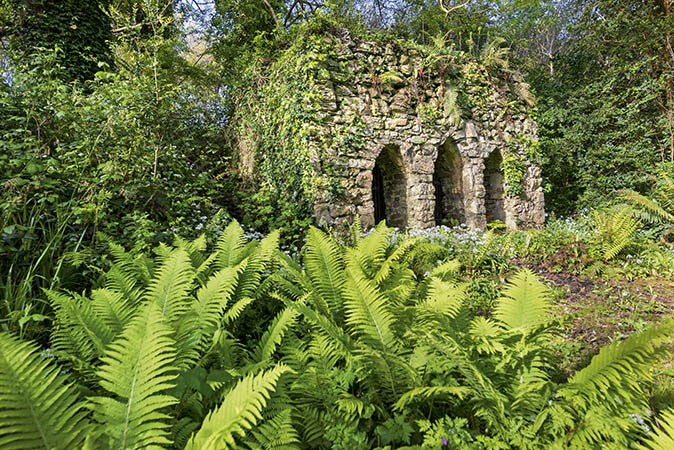
Rachael planted the wild, meadowy hill that lies at the heart of the garden with bulbs sent by her friends the Dorrien-Smiths of Tresco Abbey in the Isles of Scilly. Every March, it lights up with the pale yellow of the wild native daffodil, the Lent lily (Narcissus pseudonarcissus Lobularis). With its delicate, lemon-coloured petals and darker-golden trumpet, grey-greenish leaves and smaller, daintier habit, it’s much more poetic than so many of its showier relations.
The story moves on to my grandmother, Veronica, a painter and horticulturist. Widowed relatively young, she later married a Canadian and created the Milner Garden, a famous garden on Vancouver Island at Qualicum, which was gifted to Vancouver Island University (formerly Malaspina University-College). At Glin, she laid out formal lawns with a central gravel pathway running up to a circular sundial overlooked by a perfectly placed, vase-shaped Persian ironwood (Parrotia persica). This wonderful tree from the slopes of the Elburz mountains in northern Iran is always early to come into its bright-emerald mantle of leaves and the first to show a touch of pink in August—an early hint of summer’s end.
Veronica divided the formal parterre around the house, with its yew topiary hedge and startlingly green lawns, from the wilder meadowy hill beyond with an elegant, low, scalloped wall. A little stream bordered in fuchsia rushes under the twisted arms of the ancient primeval Killarney oaks, all covered with moss and polypody ferns. This contrast of smooth and rough, Nature tamed and cultivated beside the wild and mysterious, is what makes the composition so effective.
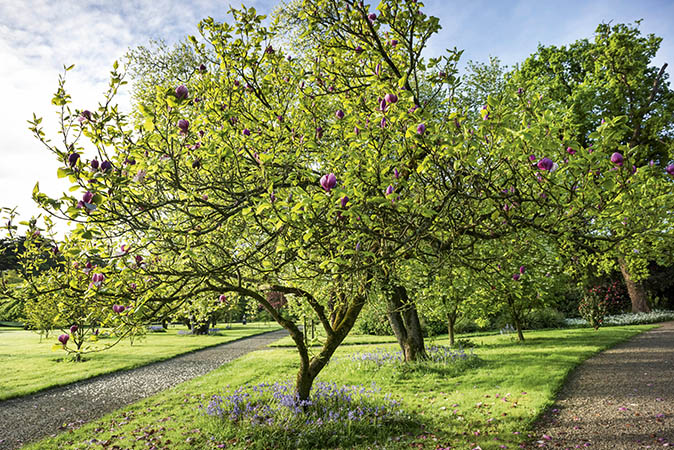
In the 1970s, my mother breathed new life into the place, continuing the line of topiary down from the sundial hedge to the giant, pointed, standard bay trees in front of the house. This has the effect of drawing the eye upwards and onwards. She caught the bulb-planting bug and, each year, planted more: cyclamen corms beneath the Pinus radiata, white crocus beneath the bare scarlet branches of Acer senkaki and mini narcissi, fritillaries, trilliums, scillas and dog’s-tooth violets beneath the giant oak at the top of the hill. She added to Veronica’s camellias, which had been taken as cuttings from neigbouring Tarbert House, with Camellia Cornish Snow and C. Freedom Bell. Handkerchief trees were brought by Lord Rosse from a plant-hunting expedition to China and magnolias and euchryphias came from Patrick Forde from his nursery at Seaforde in Co Down.
My father, the 29th Knight of Glin, who was more interested in the architecture of gardens than plants, laid out a vista and winding woodland walks and created a circle of standing stones – an allusion to the many stone circles in Limerick and Clare – which leads to the Gothic hermitage. Together, my parents found and restored the old paths in the defunct walled garden and, with the help of the wonderful Tom Wall, their gardener, planted them with espaliered apples and pears, flower borders, herbs and vegetables for the house, such as artichokes, seakale, asparagus and lovage. Tom built rustic wooden temples into the walls to designs sketched by my father on the back of an envelope.
Today, my mission is to keep this thread going so that the Glin garden can continue to be enjoyed. I’m adding to the collection of ornamental trees and shrubs – the Cornus capitata and Myrtus apiculata need no encouragement and seed themselves everywhere, but I have been introducing new species that chime with what is already here. There are more euchryphias, which helpfully flower in August when the garden begins to feel heavy and sleepy and needs a lift. The tall Chilean evergreen Berberis valdiviana, which I first saw at Mount Usher, in Co Wicklow, sparkles in spring with its flamboyant yellow flowers like bunches of golden grapes, and there are lots of new magnolias planted in drifts on the lawn, from the vigorous pale-yellow-flowered Elizabeth to my favourite, Magnolia x loebneri Leonard Messel.
There are now Chilean flame trees (Embothrium coccineum), Stewartias for their bark and more Japanese maples with coloured foliage to brighten up the dark corners. Hydrangeas are a passion – I particularly love the dusty-violet Hydrangea aspera Villosa and H. macrophylla Mme. Emilie Mouilliere, with its lavish white flowers blotched with raspberry that helpfully come out extra early, illuminating the shadowy edges of the garden. H. macrophylla Blaumeise, with its electric blue lacecaps, always draws gasps from visitors and H. paniculata Limelight and Vanilla Fraise are in their prime in September and October when the maples are turning.
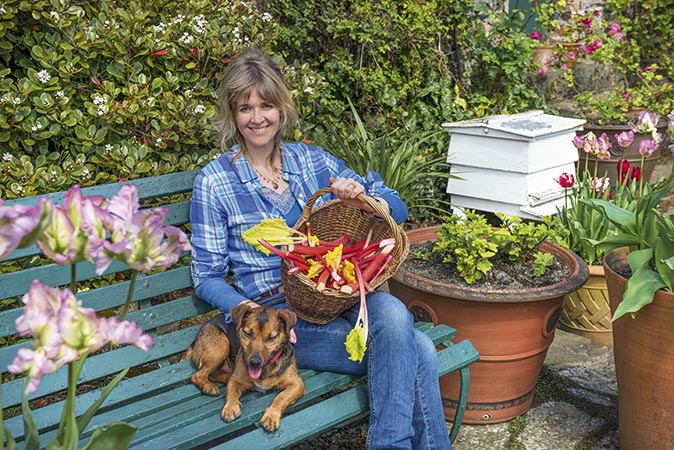
The garden has sticky clay soil and limited maintenance, so I encourage ground-covering thugs that will fight their way to survival – ferns such as Matteuccia struthiopteris spread like wildfire and are terrific value, providing wonderful contrast with their fresh-green, ostrich plumes each spring. Chilean hard fern Blechnum chilense has a fascinating, prehistoric leathery look to its fronds and will tough it out against the skunk cabbage and New Zealand flax.
Trachystemon orientalis is a fantastic, almost evergreen ground cover. It was brought over by Seamus Galvin, the head gardener at Garinish, the island paradise garden made by Lord Dunraven, with the unusual little spreader, dawn poppy Eomecon chionantha. Giant, palmate-leaved Tetra-panax papyrifer Rex, the ricepaper plant, is doing well and the biennial Echium pininana from the Canary Islands adds further exotic touches. I’m planning to get hold of a Schefflera taiwaniana, which I think would do well after seeing it flourishing at Tregrehan in Cornwall.
We spend all our holidays at Glin, when my children make dens in the rhododendron bushes as we did and are set to work clearing brambles by the stream and the sticks left by the winter gales. We’re opening the house and garden again for groups this summer and the house is available for rent.
For more details, visit www.glin-castle.com
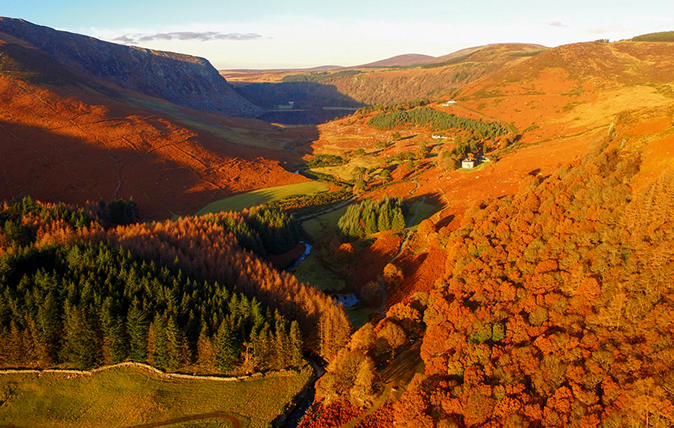
Credit: Luggala Estate, County Wicklow, Ireland
The Guinness family’s incredible estate outside Dublin goes up for sale
Penny Churchill takes an in-depth look at one of Ireland's most astonishing properties: a vast and glorious estate just a
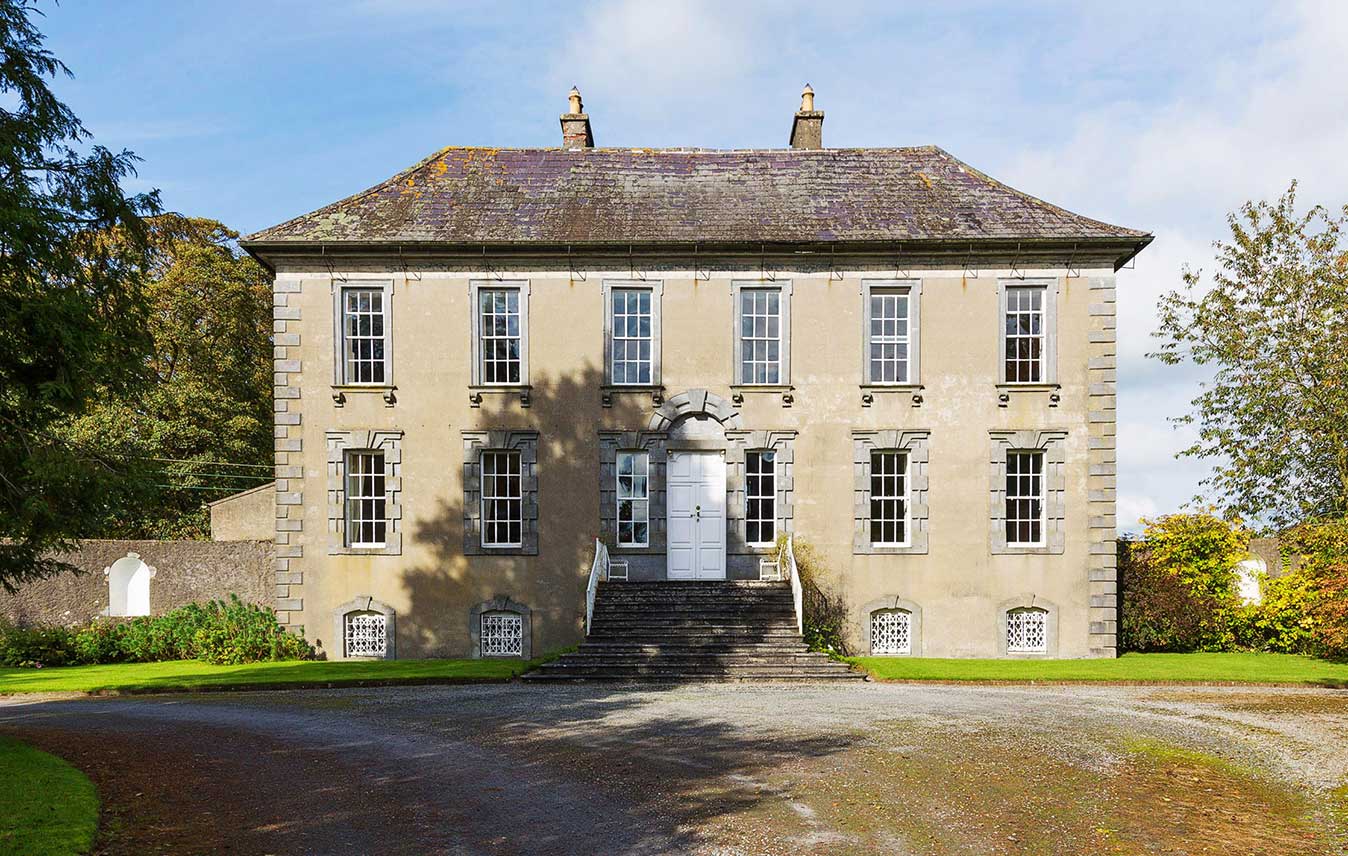
One of Ireland's 'most perfect' houses finds a new owner
Penny Churchill reports on a major move in the Irish property market which suggests that things could be beginning to
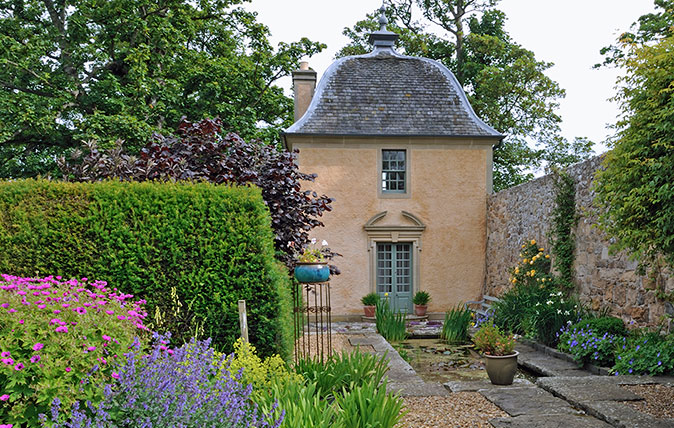
Credit: Wormistoune House, Crail, Fife – photos by Val Corbett / Country Life
Wormistoune: A luxuriant, sheltered garden tucked away in Scotland
For sheer romance it's hard to beat this luxuriantly planted and colourful Scottish garden.
Country Life is unlike any other magazine: the only glossy weekly on the newsstand and the only magazine that has been guest-edited by His Majesty The King not once, but twice. It is a celebration of modern rural life and all its diverse joys and pleasures — that was first published in Queen Victoria's Diamond Jubilee year. Our eclectic mixture of witty and informative content — from the most up-to-date property news and commentary and a coveted glimpse inside some of the UK's best houses and gardens, to gardening, the arts and interior design, written by experts in their field — still cannot be found in print or online, anywhere else.
